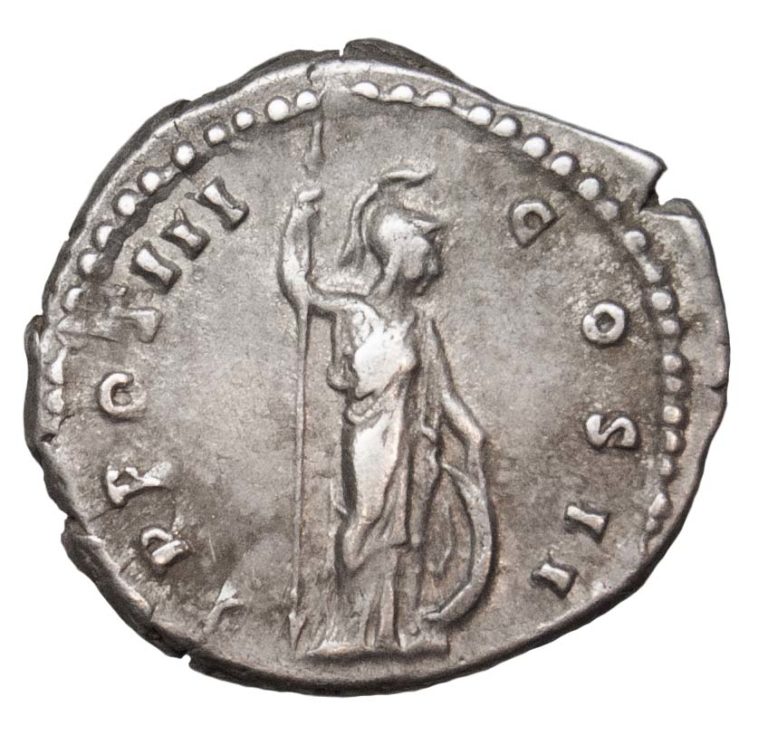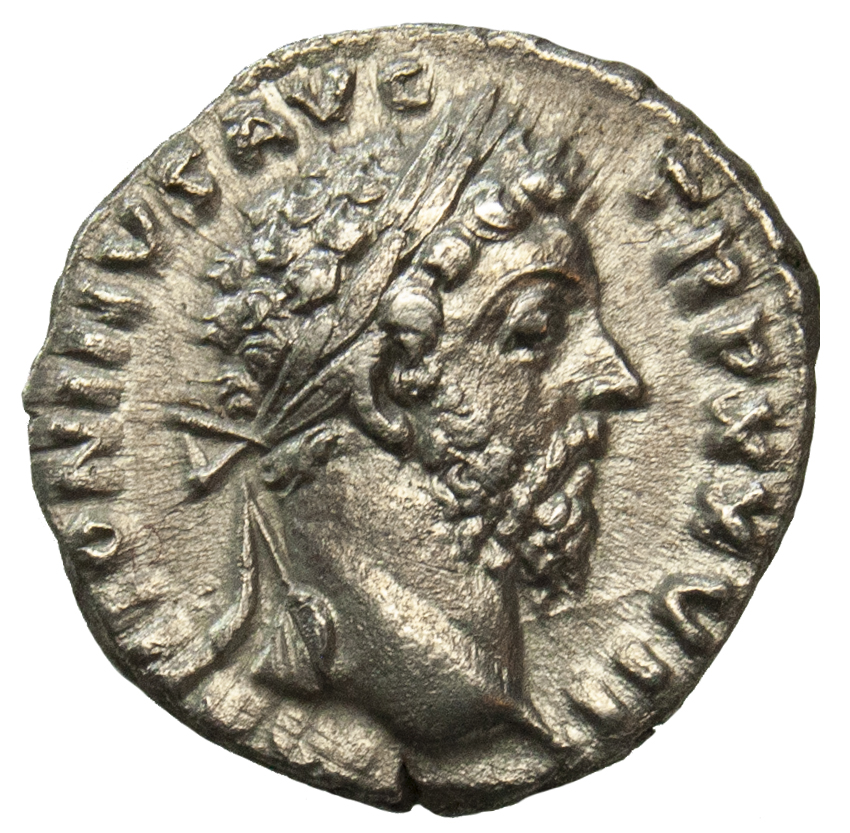

Lucilla was the daughter of the patrician P. Verus' elder son - Marcus Aurelius' father - Marcus Annius Verus (III) married Domitia Lucilla. Marcus' great-grandfather Marcus Annius Verus (I) was a senator and (according to the Historia Augusta) ex-praetor in 73-74, his grandfather, Marcus Annius Verus (II), was made a patrician. The family rose to prominence in the late 1st century AD. Marcus' family originated in Ucubi, a small town southeast of Cordoba in Iberian Baetica. Inscriptions and coin finds supplement the literary sources. Some other literary sources provide specific detail: the writings of the physician Galen on the habits of the Antonine elite, the orations of Aelius Aristides on the temper of the times, and the constitutions preserved in the Digest and Codex Justinianus on Marcus' legal work. Dio is vital for the military history of the period, but his senatorial prejudices and strong opposition to imperial expansion obscure his perspective. The main narrative source for the period is Cassius Dio, a Greek senator from Bithynian Nicaea who wrote a history of Rome from its founding to 229 in eighty books.

Marcus' own Meditations offer a window on his inner life, but are largely undateable, and make few specific references to worldly affairs.

#Marcus aurelius denarius series#
Tutor Fronto and various Antonine officials survives in a series of patchy manuscripts, covering the period from c.
#Marcus aurelius denarius full#
For Marcus' life and rule, the biographies of Hadrian, Pius, Marcus and Lucius Verus are largely reliable, but those of Aelius Verus and Avidius Cassius are full of fiction. The later biographies and the biographies of subordinate emperors and usurpers are a tissue of lies and fiction, but the earlier biographies, derived primarily from now-lost earlier sources (Marius Maximus or Ignotus), are much better. The most important group of sources, the biographies contained in the Historia Augusta, claim to be written by a group of authors at the turn of the 4th century, but are in fact written by a single author (referred to here as "the biographer") from the later 4th century (c. The major sources for the life and rule of Marcus Aurelius are patchy and frequently unreliable.
#Marcus aurelius denarius how to#
Marcus Aurelius' Stoic tome Meditations, written in Greek while on campaign between 170 and 180, is still revered as a literary monument to a philosophy of service and duty, describing how to find and preserve equanimity in the midst of conflict by following nature as a source of guidance and inspiration. A revolt in the East led by Avidius Cassius failed to gain momentum and was suppressed immediately. Aurelius fought the Marcomanni, Quadi, and Sarmatians with success during the Marcomannic Wars, but the threat of the Germanic tribes began to represent a troubling reality for the Empire. He was the last of the "Five Good Emperors", and is also considered one of the most important Stoic philosophers.ĭuring his reign, the Empire defeated a revitalized Parthian Empire Aurelius' general Avidius Cassius sacked the capital Ctesiphon in 164.

He ruled with Lucius Verus as co-emperor from 161 until Verus' death in 169. Marcus Aurelius 26 April 121 - 17 March 180 AD), was Roman Emperor from 161 to 180 AD. Statue of Marcus Aurelius - Musei Capitolini in Rome.


 0 kommentar(er)
0 kommentar(er)
